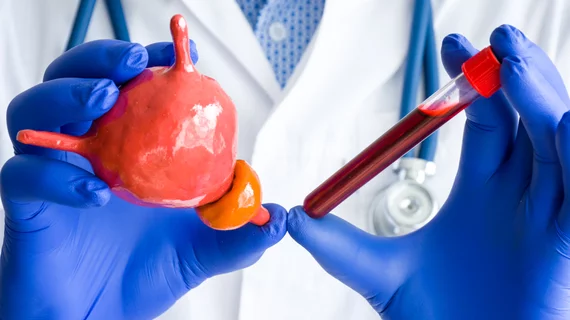MRI-based prostate cancer screening paired with new blood test can reduce deaths by up to 9%
A new blood test for prostate cancer screening that promises to significantly curtail unnecessary MRI scans also reduces patient harm and saves healthcare resources, according to new research out of Sweden.
Utilizing the Stockholm3 test with an MRI-guided biopsy approach has previously been shown to cut scans by one-third. And new evidence published in European Urology revealed that the technique can reduce the number of scans performed over a lifetime by 60% while dropping biopsies by 9%.
The new cost-effectiveness analysis also showed MRI-based screening paired with prostate-specific antigen or Stockholm3 would cut deaths related to prostate cancer by 7%-9%.
“Our evidence provides support for using Stockholm3 as an additional test in MRI-based screening, which could be evaluated through one of the organized prostate cancer testing pilots,” Tobias Nordström, associate professor of urology at the Department of Clinical Sciences, Danderyd Hospital at Karolinska Institute, said in a statement.
The findings are based on a microsimulation model for men ages 55-69 who underwent screening every four years in Sweden.
Compared with a no screening approach, screening with PSA and subsequent Stockholm3 and MRI in high-risk patients was considered moderately costly per quality-adjusted life-years gained. PSA combined with MRI, meanwhile, was classified as a very high cost per QALY gained when compared to Stockholm3 with MRI.
The current investigation is specific to Sweden, the authors noted, but the simulation model is open source and can be applied to other countries. As it stands, the Stockholm3 test is available for clinical use in Sweden, Norway, Denmark, Finland, Spain and Germany, and will be made available in additional European countries in 2022.
Read the full study here.

